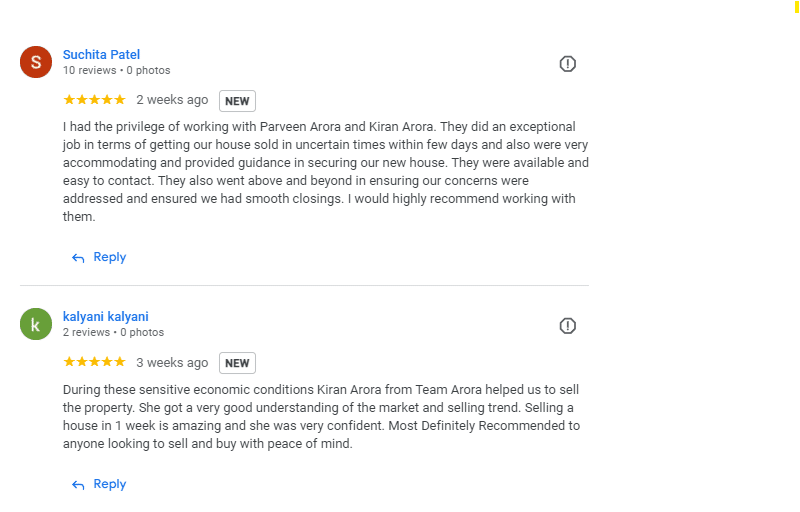When it comes to navigating the ever-changing real estate market in Canada, finding the right realtor can make all the difference. Whether you are buying your first home, upgrading to a larger space, downsizing, or investing in commercial property, having a trusted and knowledgeable partner by your side is essential. At Team Arora, we pride ourselves on being the best realtors in Canada, a distinction earned through years of dedication, expertise, and exceptional service.
Expertise That Sets Us Apart
Unmatched Market Knowledge
Canada’s real estate market is diverse and dynamic, with each province and city offering unique opportunities and challenges. From urban condos in Toronto to sprawling family homes in Brampton, to commercial properties in Mississauga, our team understands the nuances of every local market. With over 10 years of experience and a proven track record of success, we stay ahead of market trends to provide our clients with the most accurate and up-to-date advice.
Specialized Services
Our expertise including:
- Residential Real Estate: Helping families and individuals find their dream homes, whether in bustling cities or serene suburbs.
- Commercial Real Estate: Supporting businesses in securing office spaces, retail locations, and industrial properties that align with their goals.
- Pre-Construction Projects: Guiding clients through the complexities of purchasing pre-construction properties to maximize their investment potential.
- Land Development: Assisting clients in finding lucrative opportunities for land development projects.
Client-Centric Approach
Personalized Service
At Team Arora, we believe every client deserves tailored solutions. Our personalized approach ensures that every transaction is not only seamless but also aligns with your vision for the future.
Open and Transparent Communication
From the initial consultation to closing the deal, we keep you informed every step of the way. Our commitment to open communication means that you will always know where you stand, and you can rely on us to provide honest and realistic advice.
Building Relationships, Not Transactions
Many of our clients return to us for their subsequent real estate needs and refer their friends and family.
Innovative Marketing Strategies
Cutting-Edge Technology
Our innovative marketing strategies include professional photography, 3D virtual tours, drone footage, and targeted digital campaigns. By showcasing properties in their best light, we attract the right buyers quickly and efficiently.
Comprehensive Online Presence
Our strong online presence ensures maximum exposure for every property we list. Through platforms like MLS, social media, and our website, we connect with a wide audience of potential buyers and investors.
Data-Driven Decision Making
We use data analytics to track market trends, assess property values, and identify the most effective marketing channels. This data-driven approach ensures that our strategies are not only innovative but also backed by insights that deliver results.
Results That Speak for Themselves
Proven Track Record
Over $3 billion in real estate sold. Whether it’s helping first-time homebuyers secure their ideal property or negotiating multi-million-dollar commercial deals, we consistently exceed expectations.
Award-Winning Team
Our commitment to excellence has earned us numerous accolades, including being recognized as the #1 Real Estate Agent in Brampton. These awards reflect our dedication to providing top-notch service and achieving outstanding results for our clients.
Commitment to Ethical Practices
Operating Under RECO Guidelines
As licensed realtors, we strictly adhere to the Real Estate Council of Ontario (RECO) guidelines. This commitment to ethical practices ensures that every transaction is conducted with integrity, fairness, and professionalism.
Prioritizing Your Interests
Our clients’ interests always come first. Whether it’s negotiating the best price or providing unbiased advice, we go above and beyond to ensure your satisfaction.
Community Involvement
Giving Back
Through sponsorships, charitable initiatives, and volunteer work, we strive to make a positive impact in the areas we serve. Supporting local causes not only strengthens our connection to the community but also reflects our commitment to improving the lives of others.
Local Expertise
Being deeply rooted in the communities of Brampton, Mississauga, and beyond allows us to provide invaluable insights to our clients. From school districts to neighborhood amenities, we help you make informed decisions about where to live or invest.
How We Make Your Real Estate Journey Stress-Free
Streamlined Processes
Real estate transactions can be complex, but our streamlined processes ensure a smooth experience. From property searches to finalizing contracts, we handle the details so you can focus on your goals.
Strong Negotiation Skills
Negotiating the best deal requires skill, experience, and confidence.
Comprehensive Support
Our support doesn’t end when the deal is closed. We provide ongoing assistance with post-transaction needs, from connecting you with reliable contractors to answering any questions you may have about your new property.
Testimonials from Our Clients
Eddie Sehgal
“Working with Team Arora was a game-changer. Their professionalism, understanding of the market, and consistent communication made buying our home a breeze. Highly recommended!”
Afroze Saghar
“I appreciate all your help in selling our house. Parveen ji, Deepak Rajpoot is a star in your cap ! Deepak’s marketing strategies, negotiation skills, and attention to detail made the process easy and lucrative for us, and we couldn’t be happier we chose you to list our property. Deepak is truly exceptional and very friendly, impressed with his level of knowledge and the amount of data that he had about the market. Thanks Deepak and Parveen ji for every thing . I will definitely recommend you guys to my family and friends circle.
Wish you all the best !
Afroze Saghar.”
Manpreet Singh
“I had a great experience while working with Deepak Rajput from Team Arora for finding a rental house. He was very professional, showed me properties as per my needs and guided me thoroughly in the whole process.
Would highly recommend him for your house hunt.”
Why Choose Team Arora?
Experience
With over a decade of experience, we have the knowledge and expertise to navigate even the most challenging real estate scenarios.
Results
Our proven track record of success demonstrates our ability to deliver exceptional results for our clients.
Commitment
We are committed to providing unparalleled service, ensuring every client’s needs are met with professionalism and care.
Innovation
By staying ahead of industry trends and embracing new technologies, we provide cutting-edge solutions that drive success.
Integrity
Our ethical practices and client-first approach ensure that you can trust us to act in your best interests at all times.
Conclusion
Choosing the right realtor is one of the most important decisions you can make when buying or selling property. At Team Arora, we combine expertise, innovation, and a client-centric approach to deliver exceptional results. Our dedication to excellence has earned us the reputation of being the best realtors in Canada, and we are committed to helping you achieve your real estate goals. Contact Team Arora today and experience the difference for yourself.











